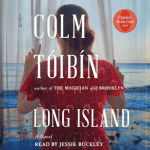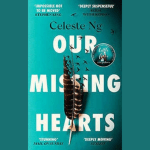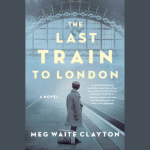 Street Corner Dreams: A Novel by Florence Reiss Kraut
Street Corner Dreams: A Novel by Florence Reiss KrautMy rating: 4 of 5 stars
My father grew up in a tough neighborhood in Brooklyn that was about half Italian and half Jewish. It marked him in several ways, most notably:
• He felt culturally Jewish, even though he was not observant. You get beat up enough times for being a “dirty Jew” it becomes hard to put that part of your identity in a closet, even if you wanted to;
• He preferred Italian food to Jewish cooking. He became an outstanding Italian-style chef. I’ve never had a lasagna as good as his!
• He wanted to get the hell out of New York as soon as he possibly could. He was horrified when I, in my early 20s, visited New York and said I thought it would be a fun place to live (as long as you had money).
Of course, that lack of money also had a profound influence on his life, and on the lives of thousands of other Jewish, Italian, Irish and other kids growing up in tough immigrant neighborhoods in the early 20th century. As a result, many were lured by the appeal of what looked to be easy money you could earn by joining criminal gangs. Florence Reiss Kraut explores this dynamic in her new book, Street Corner Dreams.
The book is centered around the story of Morty, whose mother died in childbirth while on a ship crossing to America. His mother’s sister, who had joined her on the crossing, sacrifices her dreams of getting an education and becoming a nurse in order to look after the baby, whose father is too distraught to be able to cope on his own.
As Morty grows up, he tries to stay away from the mobsters, even after his best friend joins one of the Jewish gangs. Yes, although most of us immediately think of the Italian mafia, there were plenty of criminal mobsters from other cultures, including Jews. Part of what I enjoyed about this book was seeing how a good kid who doesn’t want to be involved in gang activity can end up in it regardless.
In addition to showing the influence of criminal mobsters on everyday life in New York in the first half of the 20th century, the book also explores the realities behind other social forces in that era. What happens when a girl gets pregnant out of wedlock? Can a Jew and an Italian who are in love with each other transcend social barriers? How are marriage and family affected by secrets?
This easy-to-read story (which, at times, verged on being a tad too predictable), answers these questions. It also got me thinking about some of the children growing up in today’s American slums. No wonder so many of them end up involved in crime: it takes extraordinary talent, drive and luck to escape it. More people need to read books like this, which help those of us who live privileged lives understand and empathize with those who don’t.
View all my reviews





Glad you liked it, Florence. I hope the book is doing well.
Thank you for the lovely review. I especially liked the fact that you were able to relate the story to current day lives of immigrants and tenement dwellers and how they get caught up in crime.